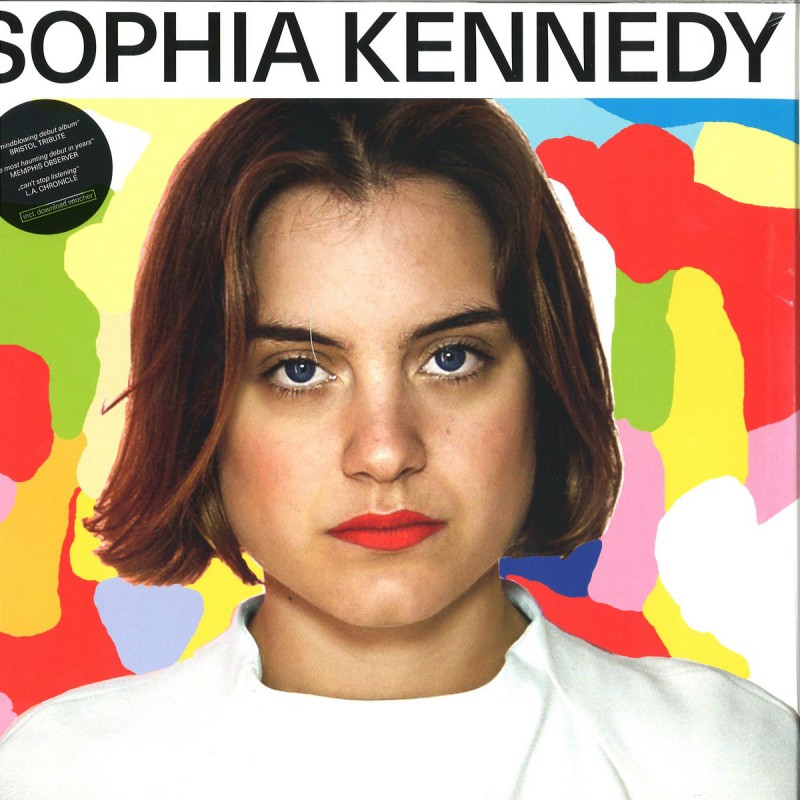Nitish Pahwa wrote this at Berghain.
Sophia Kennedy has come up as the latest signee of Berlin club music label Pampa Records—an odd distinction, considering she has little in common with her labelmates, prominent German dance artists from Axel Boman to DJ Koze. A native of Baltimore, Kennedy moved to Hamburg years ago to study filmmaking and got her musical start producing scores for local theatrical productions. In her songwriting, she draws inspiration from the melodies and arrangements of Judy Garland and Frank Sinatra while also paying attention to the unconventional song structures of Kanye West. Per her own account, she doesn’t even come from the electronic world, and prefers to listen to folk music in her spare time.
Yet all of this seems to have only affirmed her place at Pampa. Her self-titled debut album, released back in April, has been proudly touted as the label’s first “songwriting” project, deviating from its typical roster of house and techno releases. With production from both Kennedy and Mense Reents, a member of labelmate Die Vögel, Sophia Kennedy provides an amalgamation of seemingly discordant styles, with the pieces fitting in entirely unexpected ways.
Kennedy’s music sleekly incorporates all of her disparate influences and surroundings—it is an exemplar of the modern musical aesthetic that gives little regard to genre purity. Distorted techno drums drive a playful piano rag (“Being Special”). A murky intro fitting for a typical trap song cedes into a light, innocent love song (“Hello, I Found You”). The Pampa dance influence appears in catchy songs like “3,05,” but Kennedy’s theater-scoring background likewise betrays itself within the strings of “Baltimore.”
Here, not only do no two songs sound similar—no two moments in any given song sound anything like each other. The music escapes all easy lines of definition. Sophia Kennedy is a dazzling album, full of surprises, thrills, shocks, and interjections that weave their way throughout each song. Volatile noises, swelling synths, and clipped drums appear in unexpected fashions. Instrumental layers build and interlock to dizzying effect. Samples pop up intermittently, ranging from Phil Spector drums to Barack Obama quotes. Notes and lyrics are warped or repeated at random—Kennedy allows her versatile, deep, rich voice to shine on its own, but also doesn’t hesitate to put it through various processors, contorting it at will.
In contrast to the sometimes haywire nature of her instrumentation, Kennedy writes straightforward songs with guileless, honest attitudes. Several tracks consist of stream-of-consciousness observations that lead to stray moments of profundity. “A Bug on a Rug in a Building” has an especially poignant example: “I lost a button off my shirt / While running through the station to catch the last train / When it came to my mind that there’s a bug sitting on my thumb / And it’s midnight, and we haven’t spoken for a while.” These are ambling lyrics that never bore, gripping with quotidian yet all-too-human emotions and epiphanies.
Complemented with the erratic production, the concepts and stories told here carry intense weight. “Build Me a House” becomes almost overbearing with the repeated emphasis added to its central, ostensibly innocuous request—with the grand echoes from the piano, trumpets, and drums, it feels regal in its command. The ending of “Foam,” with its disfigured chant of “Everything’s elastic,” becomes a boundless nightmare. Without such jolts, the album would remain a pleasant listen, but it would hardly conjure the same sense of wonder.
In Sophia Kennedy, meandering, modest song-crafting meetings haywire, experimental production—it’s like Daniel Johnston meets John Cale fused with Kraftwerk. The album ducks and turns all expectations, making for one of the most fascinating musical works of the year. Sophia Kennedy provides an immersive landscape to explore and continually revisit, drawing on a world of sounds and genres to give quaint, peculiar tints to familiar human feelings.


